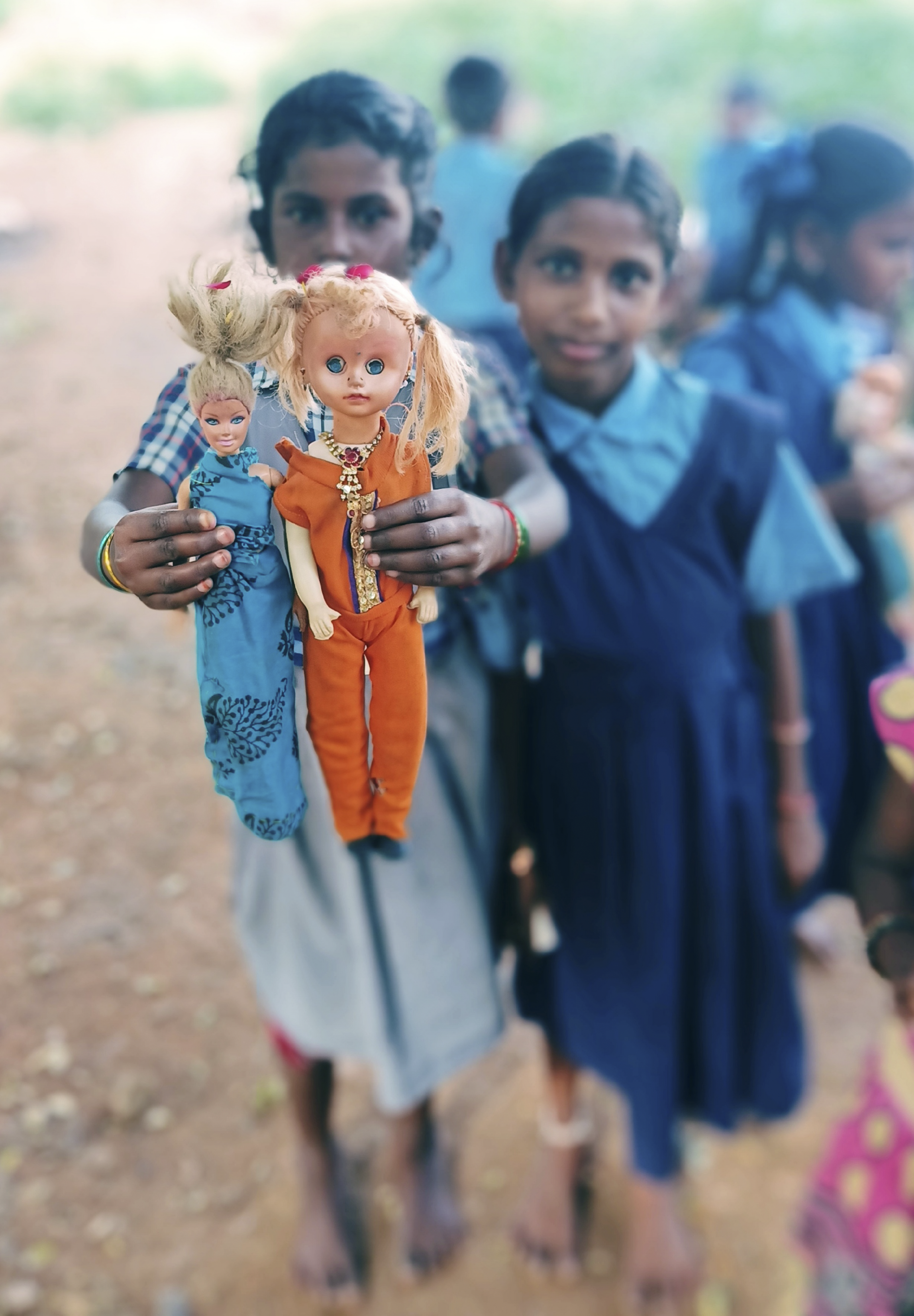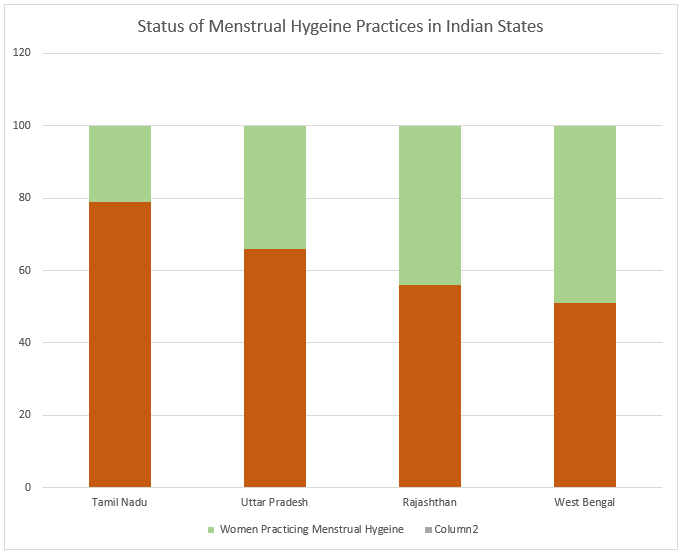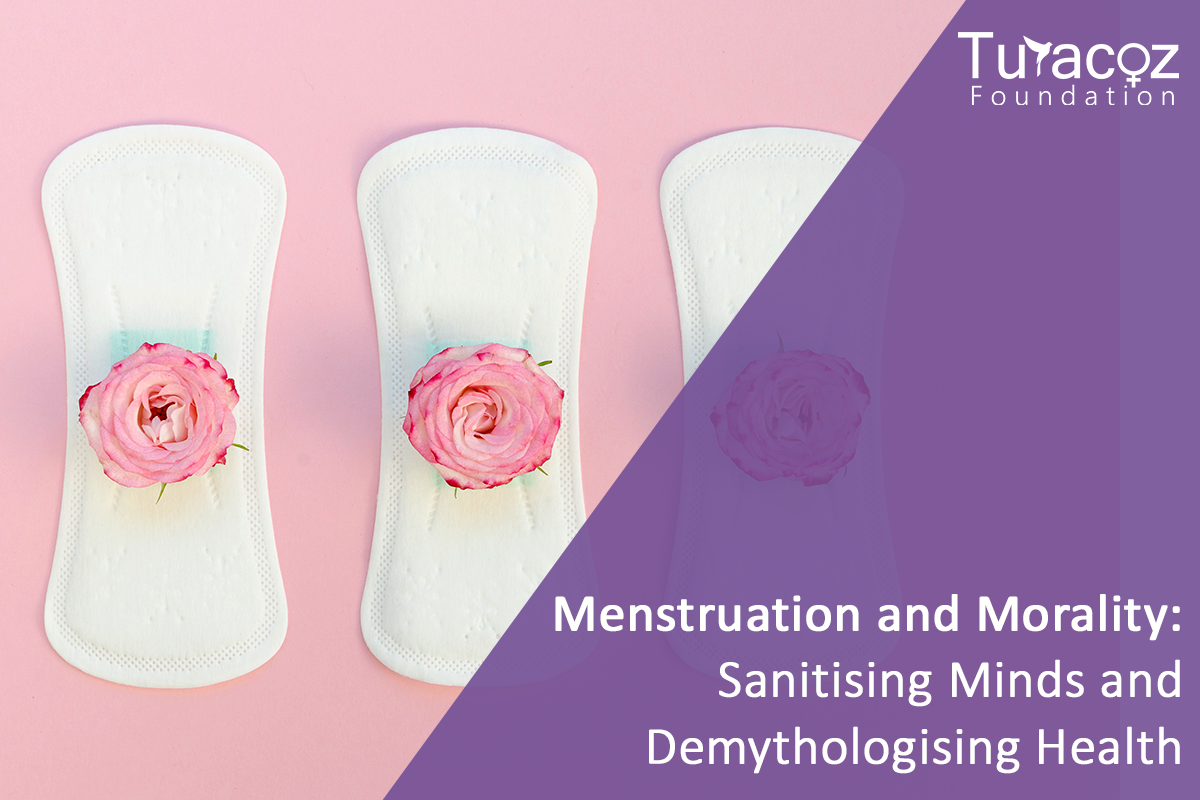“A woman’s health is her capital” - Harriet Beecher Stowe, an Author and Abolitionist
“I will never allow my daughter to use a pad. Using pad increases body heat; a cloth napkin is safer is what my mother taught me and that is what I will teach my daughters also”, a mother of two girls stated proudly as the social worker shifted uncomfortably in her seat contemplating over the morbid state of ethos that has stayed lodged into the society as deeply as the fibular nerve. Myths and taboos engulfing menstrual hygiene and sanitation have kept the minds of more than 70% of Indian women captive for aeons. A sneak peek into some statistics speaks more of an anthology of a crippled belief system than just mere numbers:
No. of menstruating women in India: 355 million
Girls at puberty dropping out of school annually: 23 million
Girls and women using sanitary pads: 36% !


UNICEF’s 2014 report on Menstrual Hygiene in India
These figures are exasperating to say the least! While a natural physiological system has gifted women the power to give life and nurture, it has collaterally compromised and abducted the basic right to education and healthy sustenance of a colossal chunk of the female population in India. 51% of Indian women still do not use sanitary pads and resort to cloths for checking their flow. Poor sanitation, lack of awareness, dismal menstrual hygiene management facilities in schools and homes, and a social stigma surrounding menstruation has got almost 60% of women either paying periodic visits to nursing stations for common reproductive tract infections or painfully succumbing to them.
Menstrual morals are deep seeded and elliptically constructed around our existence; so much so that only the dictum stays rooted while rationality is seen flying out of the window. The irony always perplexes us: if menstrual blood is so dirty, then hygiene should naturally be on high priority; but it is exactly the opposite! A pandemic of a deadly virus got everyone pull out masks, but a lurking reproductive infirmity doesn’t motivate even 50% of women to pull a pack sanitary pad down the chemist’s aisle. Remember the first time the chemist wrapped a pack of sanitary napkins in a layer of black gravelly plastic, and we sheepishly ducked it under our skirts? We successfully fixed the first date of menstruation with morality. We are all guilty of it, but we are also the fortunate ones to have got a chance to undo it. As the ones who are more privileged, aware and conscious, we need to unwrap and tear that black sheath of this moralistic menstrual monster and facilitate our kindred to claw out of the closets.
Turacoz has always been in the forefront through its robust CSR activities focussing on upliftment and empowerment of women not just professionally but also socially. This particular issue ingrained in our society for decades has been hammering Dr. Namrata’s heart and she decided to take a huge leap to bridge this gap. As a visionary and an unconventional theorist, she motivated her team to step forward for this cause. This women’s day, under her guidance, we took the initiative to impart information on good menstrual hygiene practices and distribute sanitary pads to the underprivileged sector. We contributed to a health and hygiene drive conducted in 2 slum clusters of Bengaluru through a volunteer-based, zero-funds organization called Robin Hood Army, with one of our employees being a Bengaluru-based Robin. On a bright sunny Sunday of Bangalore, the 8thof March, we executed a home-to-home survey, distribution of a 2-month supply of sanitary pads and engaged in comprehensive talks around basic menstrual hygiene within a span of 3 hours. Almost 92 women from the clusters in the age range of 12-45 were approached personally and spoken to about our mission. We touched topics like:
- Risk of infections and severe reproductive disorders linked to using cloth;
- Necessity of using hygienic absorbents for menstrual flow;
- Appropriate disposal of used sanitary pads;
- Eating healthy balanced meals to keep good reproductive health;
- And lastly, menstruation is not dirty-it is the mindset that needs cleansing.
We were gladdened to see an extremely discerning crowd of women welcoming us for the hand we offered. Our greatest reward was when we learnt that against a mere 45% in 2019 March, this year 100% of these women have shunned using cloth, resorted to sanitary pads and their hospital visits have come down by 80%! The metaphoric star on our uniform shining bright in our smiles and a rekindled optimism to see a healthier sisterhood, left us with nothing less than a sense of gratification to have made a difference to these lives.
While we do have a long way to go to sliver the menstrual stigma from society, the faith is not entirely lost. And somewhere it is prerogative as not just a fellow-woman but as a collective conscience to unhinge the misrepresented apothegm and give reproductive health its due regard as a basic right of every woman in her menstrual age and beyond. Puberty should not be a red light to education or an entry ticket to a cocoon of retrogressive evolution. It is when life starts, not ceases; and that is the green light Turacoz aspires to show every woman.
There is an ocean to give back to mankind; and every drop counts!

